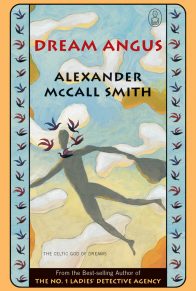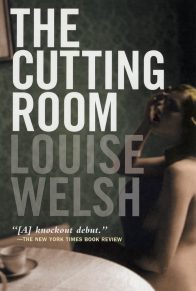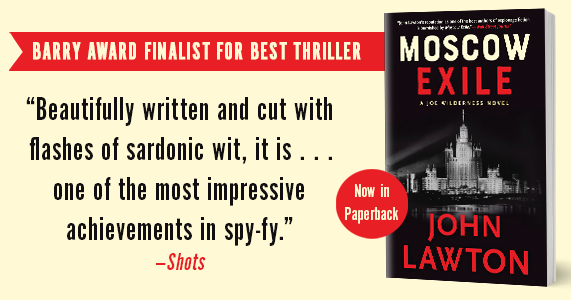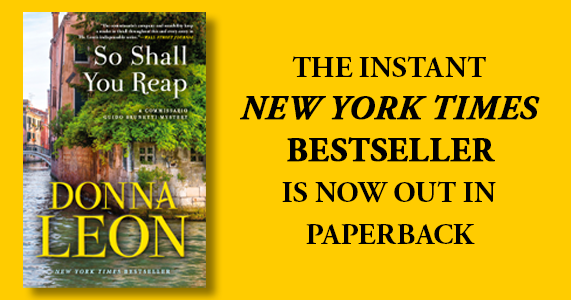I was unconscious. I’d stopped breathing.
I don’t know how long it lasted, but the engines and drivers that keep the human machine functioning at a mechanical level must have trip-switched, responding to the stillness with a general systems panic. Autopilot failure—switch to emergency manual override.
This is how my life started, my second life.
My eyes slammed themselves capital O open and my neck and shoulders arched back in a huge inward heave, a single world-swallowing lung gulp of air. Litres of dry oxygen and floor dust whistled in and snagged up my throat with knifey coughing spasms. I choked and spat through heaves and gasps and coughing coughing coughing heaves. Snot ropes unwound from my nose.
My eyesight melted into hot blurs over my cheeks.
The shudder-hacking violence of no air then too much knocked me dizzy, sent the floor tilting away under my fingers. Static behind my eyes bacteria-swarmed dangerously towards another blackout and, snow-blind and shaking, I pushed my wet mouth down tight into the palms of my hands, trying to pull controlled, steady breaths through my fingers—Slowly, slowly-slowly, the world began to reappear in sickly greens and thumping purples and after maybe a minute, it steadied itself into a shaky-solid kind of balance.
I wiped my hands on my jeans and gave in to a last scratchy cough before rubbing out the last of the tears.
Okay. Just breathe, we’re okay.
I had no idea who or where I was.
This was no sudden revelation, no big shock. The thought had congealed itself under the gasping and the choking and even now, with my body coming back under control and the realisation fully formed, it didn’t bring with it any big horror or fear. Against all that physical panic it was still a small secondary concern, a minor oddity at the corner of things. What mattered most to me—a million times more than anything—was air, breath, the easy lungfuls coming and going now. The beautiful, heavenly, angel-singing fact—I could breathe and that meant I would live. Pressing my forehead down into the wet carpet, I imagined breathing mile after mile of smooth blue savannah sky as the last of the shudders worked their way out of my body.
I counted to ten then I looked up from the floor. I propped up onto my elbows and when that seemed okay, all the way up onto my knees. I was kneeling at the foot of a double bed in a bedroom. A bedroom stocked with all the ordinary, usual things. There was a wardrobe in the corner. A bedside table with a collection of water glasses of varying ages and an alarm clock with red digital numbers—4.34 p.m., a chest of drawers cluttered with deodorant cans and lids, a tub of multivitamins and the remains of a blue toilet roll, used right down to where the paper goes wrinkly, like bath fingers. All just normal bedroom things—but I didn’t recognise any of them. None of it felt strange, but none of it was familiar either. It was all just there; unremarkable but alien stuff. The thought came that maybe I’d fallen and concussed myself, except nothing hurt. I felt around my skull to make sure, but no, nothing.
I climbed carefully up onto my feet but the new angle didn’t do anything for my memory either. And that’s when the first real stabs of worry started to land.
It isn’t all coming back to me. I don’t know any of this at all.
I felt that prickling horror, the one that comes when you realise the extent of something bad—if you’re dangerously lost or you’ve made some terrible mistake—the reality of the situation creeping in through the back of your head like a pantomime Dracula.
I did not know who I was. I did not know where I was.
That simple.
That frightening.
I clamped my teeth together and turned around on the spot, three slow visual sweeps of the bedroom, my eyes touching and exploring every ordinary incidental thing and recognising absolutely none of them. I tried the same thing mentally—closing my eyes, searching around inside my head, feeling through the black for any familiar shape. But it was all just cobwebs and shadows; I couldn’t find myself in there either.
I walked over to the bedroom window. The outside world was a long street and a facing row of terraced houses. There were regular lamp posts, irregular telegraph posts and the sounds of a distant busy road—constant car engine hum, truck bang-clatter and occasional bass box thump, but—I squashed my nose up against the glass and looked left and right—no people. It was a cloudy day, grey and edgeless. I felt edgeless too. I suddenly had an urge to rush out of the house shouting for help and running for as long as I could so someone would see me and acknowledge me as a real person and they’d call a doctor or somebody who could fit me back into my proper place, the way a clockmaker realigns all the tiny makings inside a broken watch. But I had an equally strong fear that if I did this, if I ran and shouted, no one would come, no one would see. I’d get to the end of this street only to find the traffic sounds were coming from an old tape player on the corner of an abandoned, litter-washed main road in an empty, deserted world.
No. Come on, that’s not useful. I rubbed my palm heels against my eyes, pushed down the panic and tried to clear my head. Patting down my pockets I found a wallet. I fingered through cash, receipts, bus tickets and an empty book of stamps, then—a driver’s licence.
I stared at the picture and the name on the card.
The man in the wardrobe mirror carefully touched his fingers over his thin cheeks, his nose, his mouth, his short crop of dirty brown hair. He was in his late twenties, tired, pale and a bit sickly looking. He frowned at me. I tried to read the history hidden inside the frown as he made it—what kind of person wrinkles his forehead like that? What sort of life builds up a pattern of lines like those?—but there was nothing to be seen that I could decode. The man was a stranger and his expressions were written in a language I couldn’t begin to understand. We reached out to each other and our fingertips met, mine warm and oily, his cold and smooth and made only of coloured light bouncing off glass. I drew my hand back and called the reflection by his name. And he said the same thing back, but silently, just moving his lips:
Eric Sanderson.
Eric Sanderson. When I heard myself speak it, the name sounded solid and real and good and normal. It wasn’t. It was a ruin of loose masonry, broken windows and flapping blue tarpaulin sheets. It was a derelict. A relic of something nine-tenths collapsed.
“I imagine you have a lot of questions, Eric.”
I nodded.
“Yes.” Yes? It was difficult to know what to say. It was difficult to say anything. Despite the fear and the memory blindness, my overwhelming feelings were of embarrassment; incapacity, the stupidity of myself and my situation. How could I sit here and ask this stranger to help me pick up the facts of my life? The shopping bags had burst and all my things were rolling out over a packed pavement with me scurrying after them, stooping and bumping and tripping: Excuse me. I’m sorry. Excuse me. Could you just . . . Excuse me.
It was one hour and five minutes after I’d opened my eyes on the bedroom floor.
“Yes,” the doctor said. “I appreciate this isn’t at all easy for you. It must be terribly unsettling. You are doing very well though and you should try to relax if you can.”
We were sitting in a green leafy conservatory on big cushioned wicker chairs, a small wicker and glass coffee table with cups of tea between us and a small brown dog sleeping under one of the potted cheese plants by the door. All very informal, very laid back.
“Would you like a biscuit?” The doctor’s big face tipped towards the plate of chocolate digestives.
“No.” I said. “No thanks.”
She nodded at this, took two for herself and placed them one on top of the other, chocolate side to chocolate side, and then dunked them into her tea, her heavy eyes coming back to me whenever this procedure allowed.
“Awful, I know,” she said.
Dr Randle was more like an electrical storm or some complicated particle reaction than a person. A large clashing event of a woman whose frizzy hack job of white-brown hair hummed against a big noisy blouse which, in turn, strobed in protest against her tartan skirt. She had strontium grey eyes which crackled away to themselves behind baggy lids. She made the air feel doomy, faintly radioactive. You half expected your ears to pop.
I looked away as she finished her mouthful of biscuit.
I couldn’t bring myself to start this conversation and she seemed almost as uncomfortable with the silence as I did. “Well. We should get the big things out of the way first and then we can go from there.”
I nodded.
“Right then.” She thunderclapped her hands. “What I believe you’ve been experiencing is memory loss caused by what we call a dissociative condition.”
Having almost everything to ask often means there’s nothing you can ask—no single question which, if asked before all the others, won’t seem like a ridiculous place to start. And I felt ridiculous enough. And lost. And ashamed. So I just sat there.
“Dissociative,” I said. “Okay.”
“Yes. What this means is there is nothing physically wrong with you. Physically, there are no problems at all.”
In setting it out like this of course, she was actually highlighting something else, the one thing she wasn’t saying. It made me think of that old Peter Cook sketch: I’ve got nothing at all against your right leg. The trouble is—neither have you.
“You’re telling me I’m crazy?”
Randle steepled her index fingers. “What you have is an injury. People suffer injuries of a million different kinds every day. It just that the injury you’ve suffered happens to be a . . . non-physical one.”
She skirted around the word mental. Swerved around it, in fact.
“Okay,” I said.
“The really good news is you don’t have any kind of degenerative condition or sickness that could be causing permanent damage to your brain. You’re fine physically and that means there’s no reason why you can’t make a complete recovery.”
“So this is a temporary thing?”
The hard frozen don’t know time I’d been living since I opened my eyes on the carpet seemed to split a little. A warm splash of relief hit me under the ribs.
“I believe so,” the doctor smiled a reined-in smile. It reined in my relief too.
“But?”
“But we’re probably looking towards the long term, I’m afraid.”
“How long-term?”
She held up a gentle put on the brakes hand. “I think we might be getting ahead of ourselves. I’ll answer all your questions as honestly as I can, but before we get too deep into this, there’s something very important you need to hear. I think it’s best if you hear it now, at the beginning.”
I didn’t say anything. I just sat squeezing my cold sweaty-wet hands together in my lap, waiting for whatever life I was about to be given.
“There was an accident, Eric. I’m sorry to tell you your partner was killed.”
I just sat, blank.
“It happened in Greece. An accident at sea.”
Blank.
“Does any of this sound familiar?”
Nothing.
“No.”
All of it, everything, it suddenly made me feel very sick. Stupid, inhuman and sick. I rubbed the sides of my nose with my finger and thumb. I looked up. I looked away. The questions were hot and prickly as I asked them, two grabbed stupidly and randomly from thousands. “Who was she? What did she do?”
“Her name was Clio Aames and she was training to be a lawyer.”
“Was it my fault? I mean—was there anything I could have done?”
“No, it was an accident. I doubt there was anything anyone could have done.”
“Are there arrangements? Things I need to be doing now?” I came to these things as I said them. “Family? The funeral? Who’s taking care of that?”
Dr Randle’s heavy eyes pressed down on me from behind her cup. “Clio’s memorial service has already happened. You organised a wake for her yourself.”
I sat very still.
“Why don’t I remember any of this?”
“We’ll get to that.”
“When?”
“Well, would you like to talk about it now?”
“No, I mean when did I organise it?”
“Clio died just over three years ago, Eric.”
All the gathered, clutched-at and recently bolted-together facts of my life snapped, sheared and collapsed under my weight.
“I’ve been waking up without a thing in my head for three years?”
“No, no,” Dr Randle came forward, big blotchy forearms on big tartan knees. “The condition you have, well, I’m afraid it’s quite unusual.”
When I left the bedroom I found myself on a small landing. I saw a second door but it was locked so I made my way downstairs.
The threadbare staircase led to a thin hallway with a front door at the far end. Next to the front door was a hallstand table and on the hallstand table was a big blue envelope, propped up and facing the stairs so I couldn’t miss it. On the front of the envelope were big black felt-tip words: THIS IS ADDRESSED TO YOU, and underneath, OPEN NOW.
As I got nearer, I saw the envelope was only the most obvious of a cluster of objects arranged on the table. To the left was a telephone. A Post-it note stuck across the buttons had a biro arrow pointing at the receiver and the words: SPEED DIAL 1—USE ME. To the right, a set of car keys; to the right of them, a Polaroid of an old yellow Jeep; and to the right of that, another Post-it, this one saying: DRIVE ME. A brown battered leather jacket hung from a hook on the stand.
I opened the envelope and found two sheets of paper—a typed letter and a hand drawn map. This is what the letter said:
Eric,First things first, stay calm.
If you are reading this, I’m not around anymore. Take the phone and speed dial 1. Tell the woman who answers that you are Eric Sanderson. The woman is Dr Randle. She’ll understand what has happened and you will be able to see her straight away. Take the car keys and drive the yellow Jeep to Dr Randle’s house. If you haven’t found it yet, there’s a map in the envelope—it isn’t too far and it’s not hard to find.
Dr Randle will be able to answer all your questions. It’s very important that you go straight away. Do not pass go. Do not explore. Do not collect two hundred pounds.
The house keys are hanging from a nail on the banister at the bottom of the stairs. Don’t forget them.
With regret and also hope,
The First Eric Sanderson
I read through the letter a couple more times. The First Eric Sanderson. What did that make me?
I took the jacket from the stand and picked up the map. The door keys were hanging just where the letter said they’d be. I called the number.
“Randle,” a voice said.
“Dr Randle?” I pushed the car keys into my pocket. “This is Eric Sanderson.”
Dr Randle came back into the conservatory with more tea and biscuits and a box of tissues on a tray. The brown dog under the cheese plant lifted its head, sniffed in a sleepy, going-through-the-motions sort of a way, then closed its eyes again.
“Dissociative disorders,” Randle descended slowly into her creaking wicker chair, “are quite uncommon. They sometimes occur in response to severe psychological trauma, blocking out memories which are too painful or difficult for the mind to deal with. A circuit breaker for the brain, you could say.”
“But I don’t feel like I’ve forgotten anything,” I said, fumbling around again inside my head. “It’s just, there’s nothing there. I mean, I don’t think I feel anything about that girl. I don’t even—” I put my palms out in a gesture of emptiness and scale.
The Randle nebula shifted, strobed, stretched and rolled in on itself until a big meaty hand with a tissue in it was patting my knee.
“The first few hours are always difficult for you, Eric.”
“What does that mean?”
“Well, as I said, your condition, I don’t like to use the term unique, but it’s quite distinctive in several—”
“How many times have we done this, Doctor?”
She didn’t even stop to think about it.
“This will be your eleventh recurrence,” she said.
“In the majority of cases, dissociative amnesias occur and resolve relatively quickly. Generally speaking, it’s the trigger event, the traumatic incident causing the condition, which is forgotten. Sometimes, the memory loss can be —” Dr Randle made a vague circle with her hand “—more general, but not often. A single recurrence of any kind is very, very unusual.”
“And eleven is off the charts.”
“Yes. These things are rarely black and white, Eric, but even so, I have to tell you—” she cast around for the right words, and then gave up.
“I see,” I said, scrunching the tissue.
Randle seemed to be thinking. The heaviness lifted for a few seconds as she turned her thoughts inwards. When she looked back over at me, her forehead knotted up.
“You haven’t had any urge to pack up and leave, have you?”
“Leave?” I said. “And go where?”
“Anywhere. There’s a very rare condition which we call fugue—”
“What?”
“It means ‘flight.’ People suffering from it do just that; they take off, run away. From their lives, from their identities, from everything.” She made a vanished-in-a-puff-of-smoke gesture. “They just go. Before we go on, are you sure you haven’t felt a desire to do anything like that?”
“I don’t think so,” I said, trying the idea for size. “No. I don’t think I want to go anywhere.”
“Good. Can you give me a line from Casablanca?”
“Sorry?”
“A line from Casablanca.”
I was in danger of being seriously left behind but I did what I was told.
“‘Of all the gin joints in all the world, she has to walk into mine.’”
“Good,” Randle nodded. “And who says that?”
“Bogart. Rick. The character or the actor?”
“It doesn’t matter. Can you picture him saying it?”
“Yes.”
“Is the film in colour or black and white?”
“It’s black and white. He’s sitting with a drink at—”
“And when was the last time you saw Casablanca?”
My mouth opened and an almost-sound happened in the back of my throat. But I didn’t have an answer.
“You see? All that seems to be missing, Eric, is you. And that’s a typically fugue-like state of affairs, I’m afraid.” Randle thought for a minute. “The truth is, I’m reluctant to pin this down with a final diagnosis. So much about your case is unusual. For instance, your amnesia didn’t even begin on the night of the accident. You appear to have shown no symptoms at all for almost twelve months.”
“And how unusual is that?”
Dr Randle lifted her eyebrows.
“Right.”
“When it finally happened, your memory loss related only to a single night—the night of the accident in Greece. You received three months of regular treatment for amnesia and you were even making some progress, but then you suffered your first recurrence.”
“Which means?”
“You suddenly lost more memories.” She left a break for me to take this in. “All the memories of your holiday in Greece had become patchy and there were little holes in memories from other parts of your life too, some of them quite unrelated.”
Little holes. Little bits missing. Things nibbled away here and there.
“And the holes kept getting bigger?”
“I’m afraid so. With each recurrence, you remembered less.”
I could feel the empty space inside me, in my skull, in my guts.
“And now here I am with nothing.”
“I know it doesn’t feel like it at the moment, Eric, but you have to keep focused on the fact that none of your memories are really lost. What you are suffering from—whatever the peculiarities of your case—is a purely psychological condition. It’s a type of memory suppression, not actual damage. Everything is still in your head somewhere and, one way or another, it will start to come back from wherever you’ve hidden it. The trick will be in working out what’s triggering the recurrences and finding a way to defuse it.”
I nodded blankly.
“I think that’s enough for today,” Randle said. “It’s a lot for you to take in all at once, isn’t it? Perhaps you should go home now, try to get some rest. Shall we meet up again tomorrow evening?”
“Yes. Sure.” They ached; my eyes ached. I started to push myself up on the wicker chair arms.
“Oh, before you go—one more thing.”
I stopped.
“Okay,” I said, for the hundred-thousandth time.
“In the past, you’ve written and left letters for yourself to be read after a recurrence. I must ask you—and this is very important now, Eric—under no circumstances write or read anything like this. It could be incredibly destabilising for you, possibly even leading to another—”
Something on my face gave me away. She stopped mid-sentence and chased my reaction.
“Has something like this happened already?”
“No.” It was a knee-jerk, things are complicated enough thing to say, nothing to do with what would be the best or not the best thing to do. Was it even really a lie? I smoothed over the bumps deciding I’d think about it later: “Well,” I said. “There was a note by the front door telling me to phone you and how to get here, just that kind of thing.”
Half true. Less than half true: Good luck and sorry. The First Eric Sanderson.
“Of course,” she said. “You should leave that in place in case you ever need it again. But please—if you should come across anything else, bring it straight to me. Don’t read it. I know what I’m asking you to do is difficult, but if I’m going to be able to help you, this is very, very important. Okay?”
“Yes,” I said. “Sure,” I said. “No problem.”















